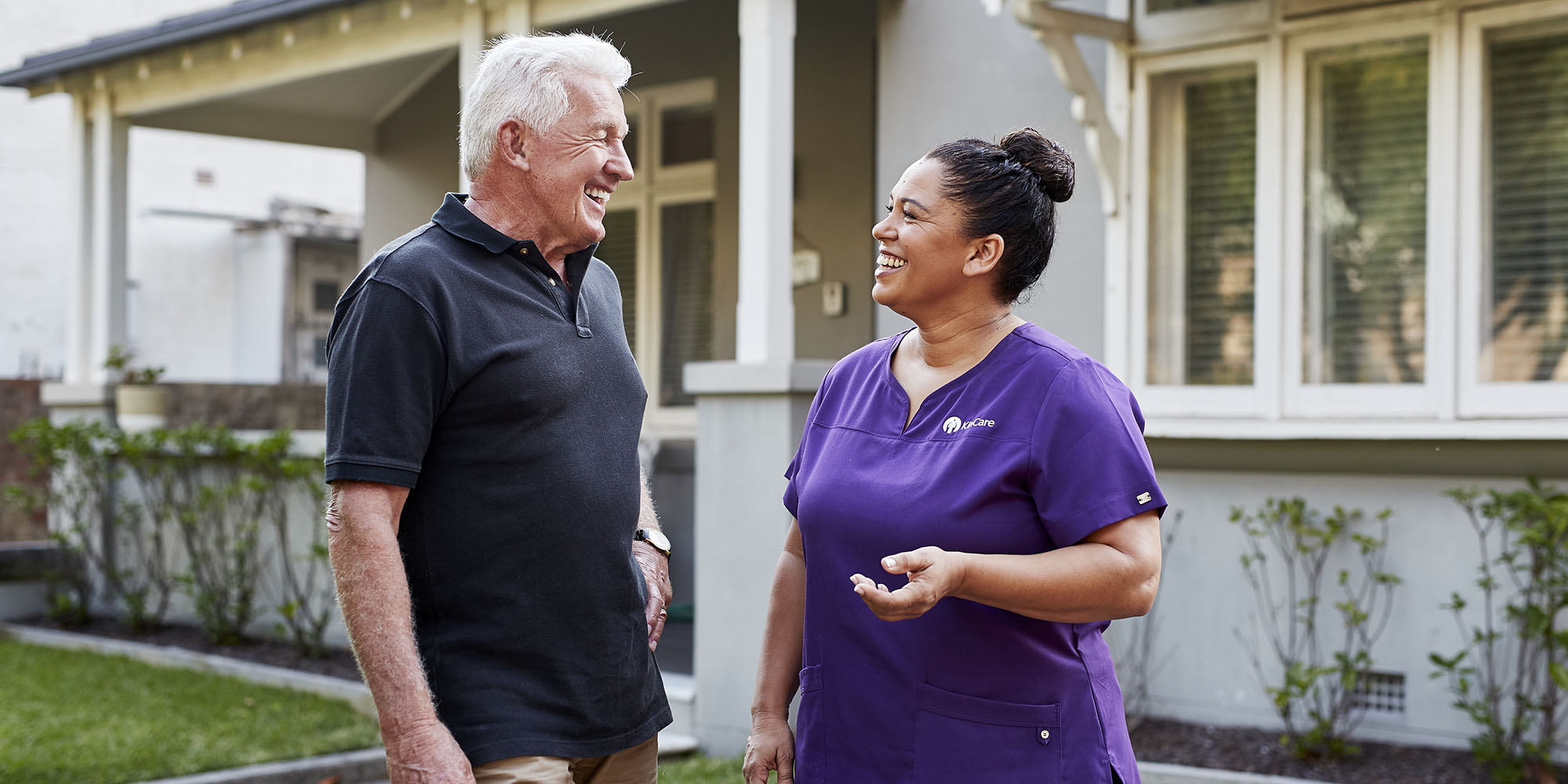
Your loved one might need extra support during the pandemic
by KinCare — 30 July 2020
The current COVID-19 pandemic has turned our lives upside down and brought significant changes to the way many of us go about our daily activities. If you support an elderly relative or friend, you may have noticed changes to their way of life. Sometimes these changes are a sign that it may be time to consider alternative living arrangements, such as residential care, or arranging extra support for them at home.
Decisions like these are difficult at the best of times, and the current pandemic certainly doesn’t make it any easier. However it’s important to remember that there are many services that can support older people to continue living independently in their own homes.
KinCare is here to help you and your loved one make the right choice.
What are the two options for care?
There are two main options – residential care or in-home care.
Moving into residential care or long-term accommodation is often the traditional choice for older people who are finding it tough to live independently in their own homes. There are a range of residential options to choose from, which include:
- Independent living in retirement villages or over-55’s communities
- Assisted care facilities, where meals, housekeeping, laundry and garden care are provided
- Nursing homes, where people with the highest needs can receive the specialised medical help they need and, down the track, end of life care
However, there’s no place like home for comfort and security, so that’s where in-home care can help. This type of service and support is for anyone who wants to stay living in their own home for longer, but needs some assistance to stay healthy and safe.
Considering home care instead of residential?
We can be there every step of the way, offering a helping hand, as you navigate this critical life stage. We will help your loved one choose the future that’s right for them with our outstanding home care options.
Living in your own home is better for your health
Studies have found that living at home longer has direct health benefits for older people and can even increase their life expectancy. In-home care provides your loved one with independence, while supporting them to do the chores, activities and self-care that they find difficult to manage on their own.
In-home care may only be needed for a few hours a week to help keep the house and garden maintained. Care might be needed for a few hours each day to assist your loved one to get ready for their day, prepare their meals and drive them to appointments.
And in-home care can also include complex care such as nursing support, clinical services or palliative care. Our services can be provided around the clock, every single day, if needed.
Stay connected with loved ones while isolating
If you’re worried about your loved one experiencing social isolation during the pandemic, some in-home care providers like KinCare also offer ways to help older people engage and interact online with others, or connect with family and friends who they can’t visit in person. If you’re not able to visit your loved one to assist with their shopping, meal preparation or keeping the house clean, KinCare can also provide services to assist with these tasks until you’re able to visit them at home again.
Create a tailored care plan
One other key benefit of in-home care is the opportunity to tailor services to individual needs. This means your loved one won’t pay for services or support they won’t use. In partnership with your KinCare Customer Care Manager, you can build a customised care plan that can be updated as the needs of your loved one change over time.
Talk to KinCare for caring, expert advice
There are cost considerations for both residential care and in-home care. The amount you pay for either option will depend on personal circumstances. Depending on your circumstances, your loved one may also be eligible for a Home Care Package.
Read our comparison of residential care and in-home care for more information about the costs involved and other differences.
Talk to us about your situation and to learn more about how our services can support your loved one to stay living in their home longer. Call us on 1300 702 319